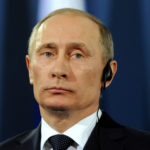The Cold War – as unpleasant as it was – was at least characterized by a set of diplomatic rules that had been elaborated over time and the states concerned either abode by or went to great lengths to abide by them. It is no longer the case, with the United States walking out on the disarmament agreements signed with the former Soviet Union. The world has become less predictable. Such is the diagnosis given by the President of the Russian Federation Vladimir Putin during an hour-and-a-half interview that was recently held with him by two Financial Times journalists. The Russian leader competently – as usual – addressed the issues raised by his interlocutors.1)Vladimir Putin: the full interview, YouTube 2019-07-05.
The Russian president has one more time sent a message to Western diplomats and the common people. What the message is?
There is a split between the elites and the people. The split caused by rampant liberalism, a diktat that suppresses the traditionally minded citizens, a diktat that serves the rich and harms the poor. Chancellor Merkel has made a huge blunder letting in hundreds of thousands of Third World immigrants, whereas President Trump correctly read the wish of common Americans and won the vote. The suspicion that he won the presidential campaign because of Russian interference is ridiculous. We may dispute whether President Trump’s idea of separating the United States from Mexico by means of a wall is good or bad, yet the voters see that their leader at least is attempting to do something about the problem, whereas his European counterparts are adding fuel to the fire. Why, the elites live in guarded, separate, gated city quarters and the people do not. The same holds good for globalism. The outsourcing of manufacturing lined the pockets of the West’s very rich while impoverishing the middle class. Liberalism is at its end. It has destroyed tradition and ousted religion and offered an ever increasing number of genders in return. Still, people on the whole, whether they realize it or not, live by biblical values. One cannot operate as if it were not so.
One should let particular countries control their own form of government. Western style democracy must not be imposed on Venezuela, Libya or China. Ruling 1,3 billion Chinese is not comparable to administering a country like Luxembourg, with due respect to the latter; Libyan competing desert tribes cannot be made to embrace democracy made in the West simply because they have not had any experience with it before; a Venezuelan self-styled president – as politically or economically talented as he may be – cannot dislodge the president incumbent by just saying so. It all leads to chaos. When the Russian delegation asked the Western partners (President Putin always refers to foreign leaders as partners) what they thought would happen after Syria’s President Assad had been toppled, they stated unashamedly they did not know. They did not know! That means they reckoned with having chaos with all attendant consequences. That’s not the way Moscow sees things. One may complain about a government or a current situation but then one should think ahead. Towards the end of the Soviet Union when the shop shelves were empty and everything was in disarray, people thought it could not be any worse. There came the nineties and they learnt the hard way it could when the social security and the health care systems collapsed and unemployment skyrocketed from day to day. It was the violent government change in the Arab countries, a change remotely controlled from outside, that made North Korea’s leaders opt for developing their own nuclear weapons.
Confronted with the Skripal case and the prospects of good relations between Russia and the United Kingdom, Vladimir Putin adroitly used the question to make the British side look stupid. Sure, Russia had nothing to do with the Skripals (father and daughter), but if London wishes to press this case again and again, then the question might be reversed from the one accusing Russia of poisoning the Skripals into the one investigating why Great Britain had a spy inside Russia in the first place and how that might contribute to good mutual relations. Asked what he thought of treason, President Putin said without hesitation that treason is the worst of crimes, always, everywhere. The viewer may have got the impression that these words were addressed to all would-be traitors of the Russian fatherland and maybe they were a subtle confirmation of Russian involvement in the Skripal case, a warning to those who might be playing with the idea of being disloyal.
On a personal note, President Putin said he regarded Peter I as a his role model, i.e. the monarch who at the beginning of the 18th century modernized Russia by forcefully reforming and westernizing it and thus laying the foundations for it becoming a European power. Joseph Stalin’s paragon of a leader was Ivan the Terrible, a conqueror and ruthless monarch who separated his realm from the Western influence. These two political patron saints from two different centuries may succinctly and symbolically characterize the two Russian leaders from another two centuries. From among the living leaders that he has come into contact with, he said he was impressed by the French President Jacques Chirac.
References
| 1. | ↑ | Vladimir Putin: the full interview, YouTube 2019-07-05. |




